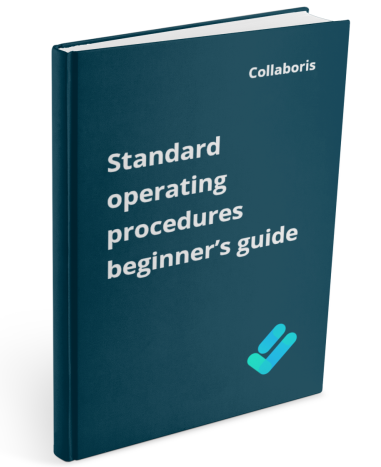Policy Approval Workflow Automated policy approval workflows offer several benefits that can significantly enhance ...
The urgency of establishing an AI usage policy

In an era characterized by rapid technological advancements, Artificial Intelligence (AI) stands as a transformative force, reshaping industries and business operations. However, with innovation comes responsibility, particularly in the realm of compliance. As a vigilant compliance manager, it's imperative to recognize the critical need for an AI Tool Usage Policy within your organization. In this blog post, we'll delve into the compelling reasons why such a policy is not just an option, but a strategic necessity.
1. Addressing Ethical and Legal Complexities
The introduction of AI tools into business processes introduces intricate ethical and legal considerations. From data privacy and security concerns to potential bias in decision-making, the implications are far-reaching. By crafting a comprehensive AI Tool Usage Policy, you lay the groundwork for ethical AI integration that respects user rights and aligns with evolving legal frameworks.
2. Safeguarding Data Privacy
AI tools thrive on data, often involving the processing of sensitive information. Without a well-defined policy, mishandling of data becomes a looming risk. Your policy can establish stringent guidelines for data collection, storage, and sharing, ensuring compliance with data protection regulations such as GDPR or HIPAA, depending on your industry.
3. Ensuring Transparency and Accountability
As AI-driven decisions impact various aspects of your organization, stakeholders demand transparency and accountability. An AI Tool Usage Policy can set expectations for transparent AI algorithms, clear communication of AI's role in decision-making, and accountability mechanisms for any unforeseen outcomes.
4. Managing Bias and Fairness
AI tools can inadvertently perpetuate biases present in training data, leading to unfair outcomes. A policy can demand ongoing bias assessment, algorithm audits, and continuous refinement to ensure fair treatment and mitigate potential discriminatory impacts.
5. Upholding Brand Reputation
In an interconnected world, reputation is paramount. AI-generated content, if not properly managed, can inadvertently damage your brand's reputation. Your policy should outline guidelines for maintaining brand consistency, tone, and messaging across AI interactions to ensure a seamless user experience.
6. Encouraging Innovation within Boundaries
Innovation is the hallmark of progress, but unchecked experimentation can lead to risks. An AI Tool Usage Policy provides a framework for responsible innovation by setting clear boundaries and guidelines for adopting and testing new AI tools.
7. Enabling Effective Compliance Audits
Regulatory bodies increasingly scrutinize AI applications. Having a policy in place streamlines compliance audits, demonstrating your organization's commitment to adhering to regulations and industry standards.
8. Enhancing User Experience
User experience and satisfaction are intertwined with the quality of AI interactions. A policy can outline parameters for AI's behavior, responses, and escalation paths, ensuring that users receive accurate and helpful assistance.
9. Supporting Employee Understanding
Your organization's workforce needs to understand the nuances of AI tool usage. A policy provides employees with clear guidelines, enhancing their understanding of AI's role, limitations, and best practices.
10. Future-Proofing Your Organization
As AI technology evolves, so do the associated risks and opportunities. An AI Tool Usage Policy positions your organization to adapt proactively, integrating new insights and emerging best practices into your operations.
Conclusion
In a world where AI is reshaping industries at an unprecedented pace, compliance managers play a pivotal role in ensuring responsible and ethical AI integration. An AI Tool Usage Policy is not just a regulatory checkbox; it's a strategic imperative that safeguards your organization's reputation, enhances user experiences, and positions you as a responsible industry leader. By establishing a clear policy framework, you embrace the future with confidence, knowing that your organization navigates the AI landscape with integrity and compliance at its core.
We have been developing policy compliance solutions for SharePoint for over 12 years.
We understand how businesses can struggle to ensure all employees have acknowledged critical documents like policies or procedures.
That's why we created DocRead, a tool that allows you to distribute policies, procedures, and important documents to employees and track acknowledgments, ensuring employee compliance and accountability.
All without leaving SharePoint.
Want to see how we can save you time and automate your employee compliance?
DocRead has enabled us to see a massive efficiency improvement... we are now saving 2 to 3 weeks per policy on administration alone.
Nick Ferguson
Peregrine Pharmaceuticals
Feedback for the on-premises version of DocRead.
Get your free Standard Operating Procedures guide
Creating Standard Operating Procedures for your organisation doesn't have to be complicated. This guide will introduce you to the whole lifecycle from creation to training and distribution.
You may also like:
January 17, 2025
January 7, 2025
Creating policy review reminders in Office 365 You might want to set up a ...
December 19, 2024
Podcast: Implementing effective healthcare procedures Implementing effective healthcare procedures is an ongoing process. It ...
December 19, 2024
Podcast: 10 Powerful Strategies for Employee ComplianceOrganizations face challenges in ensuring employee compliance with ...
December 8, 2024
AI Warns About Itself: How I Asked AI to Create a Podcast on the ...
November 4, 2024
Benefits of writing SOP's In any organization, standard operating procedures (SOPs) are critical to ...

